Animals
-
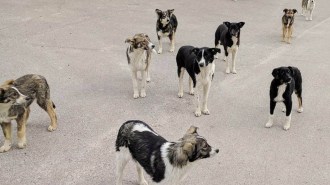 Animals
AnimalsWhat the first look at the genetics of Chernobyl’s dogs revealed
Dogs living in the Chernobyl Nuclear Power Plant industrial area are genetically distinct from other dogs, but scientists don’t yet know if radiation is the reason.
By Meghan Rosen -
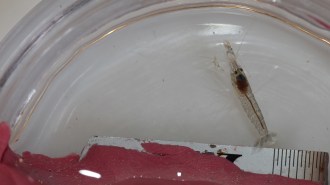 Animals
AnimalsThe fastest claw in the sea belongs to young snapping shrimp
When juveniles snap their claws shut to create imploding bubbles, they create the fastest accelerating underwater movements of any reusable body part.
By Jake Buehler -
 Life
LifeChemical signals from fungi tell bark beetles which trees to infest
As fungi break down defensive chemicals in trees, some byproducts act as signals to bark beetle pests, telling them which trees are most vulnerable.
By Freda Kreier -
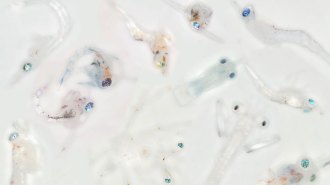 Animals
AnimalsGlassy eyes may help young crustaceans hide from predators in plain sight
Nanospheres in the eye reflect light that matches the color of the surrounding water, possibly making the animals invisible to nearby predators.
-
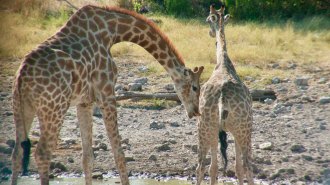 Animals
AnimalsWhy male giraffes drink potential mates’ pee
In giraffes, an organ that detects pheromones has a stronger connection to the mouth than the nose. That’s different from many other mammals.
-
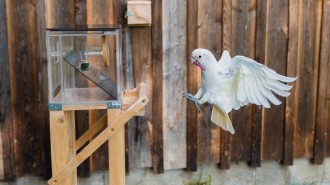 Animals
AnimalsCockatoos can tell when they need more than one tool to swipe a snack
Cockatoos know when it will take a stick and a straw to nab a nut in a puzzle box. The birds join chimps as the only known nonhumans to use a tool kit.
-
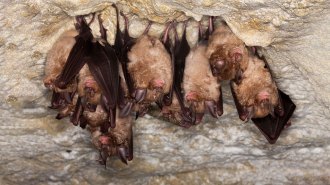 Life
LifeMammals that live in groups may live longer, longevity research suggests
An analysis of nearly 1,000 mammal species reveals that the evolution of mammals’ social lives and life spans could be linked.
By Jake Buehler -
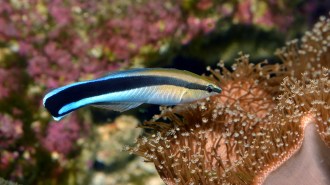 Animals
AnimalsFish can recognize themselves in photos, further evidence they may be self-aware
Cleaner fish recognize themselves in mirrors and photos, suggesting that far more animals may be self-aware than previously thought.
By Betsy Mason -
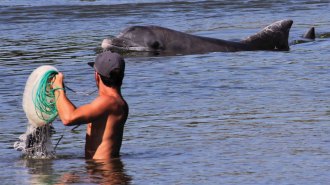 Animals
AnimalsHere are 3 people-animal collaborations besides dolphins and Brazilians
Dolphins working with people to catch fish recently made a big splash. But humans and other animals have cooperated throughout history.
-
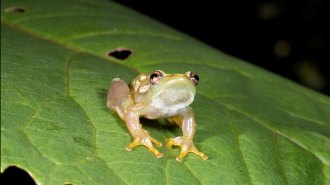 Animals
AnimalsA newfound ‘croakless’ frog may communicate via touch
A newly discovered frog species in Tanzania joins a rare group of frogs that don’t croak or ribbit.
-
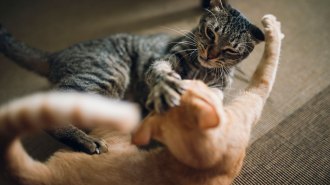 Animals
AnimalsAre your cats having fun or fighting? Here are some ways to tell
Certain behaviors indicate if your cats’ interaction is friendly, aggressive or something in between, a new study finds.
-
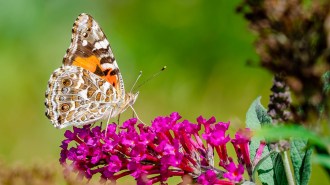 Life
Life76 percent of well-known insects fall outside protected areas
Protected areas can provide safe havens for insects, but many existing ones fall short, a new study finds.
By Freda Kreier